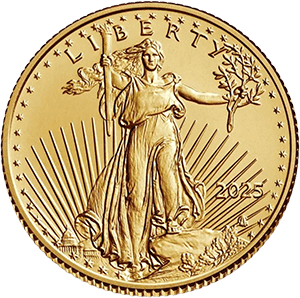
Intro: Protecting Value Through Materials and Security
Investing in gold and silver coins — or building a historic coin collection — requires more than just purchasing the right pieces. The materials you use to store your coins and the steps you take to secure them are just as critical. Without proper storage, even rare or high-purity coins can become corroded, scratched, or devalued.
In this guide, we dive into the best coin storage materials, break down common storage mistakes, and share practical security tips to keep your collection protected for the long haul.
Section 1: Choosing the Right Coin Storage Supplies
Before you place a single coin into storage, you need to understand what materials are safe — and what could quietly destroy your investment over time.
What to Look For:
-
Archival-safe, inert materials (no PVC, acids, or plasticizers)
-
Air-tight sealing to prevent oxidation
-
Stackability or easy organization for larger collections
What to Avoid:
-
PVC-based plastics (polyvinyl chloride breaks down and releases corrosive gas)
-
Low-grade cardboard with acidic glue or ink
-
Improvised containers like baggies, jars, or coin jars with metal lids
Section 2: Breakdown of the Best Coin Storage Products
2x2 Mylar Flips
-
Ideal for affordable protection and viewing.
-
Can be stapled or sealed with adhesive.
-
Best for circulated coins, lower-value collectibles, or bulk sorting.
-
Avoid the old-style vinyl flips — many contain PVC.
Airtight Coin Capsules
-
Best for uncirculated, proof, and commemorative coins.
-
Clear, hard plastic cases that lock tight.
-
Offers great display potential and excellent protection against fingerprints and air.
Coin Tubes
-
Ideal for silver and gold bullion coins in bulk (e.g., American Silver Eagles, Canadian Maple Leafs).
-
Choose tubes that fit coin diameter precisely.
-
Use tubes with foam or cork padding on the top to limit rattling.
Coin Albums & Pages
-
Aesthetic storage with labeling options.
-
Best for sets or series like Lincoln Cents, State Quarters, etc.
-
Choose albums with acid-free paper and archival-safe plastic overlays.
Coin Boxes
-
Great for organizing capsules or flips in bulk.
-
Stackable and portable.
-
Use labeled dividers for easy indexing.
Section 3: Where to Purchase Coin Storage Supplies
Trust and quality matter — especially if you're buying online. When searching for where to purchase coin storage supplies, look for vendors that:
-
Specialize in numismatic and precious metal products
-
Offer PVC-free and archival-safe certifications
-
Are backed by trusted customer reviews and return policies
Recommended Outlets (generic placeholders you can customize):
-
American Standard Gold – Premium-grade supplies, shipped discreetly
-
Guardhouse, BCW, and Air-Tite – Brands known for capsule quality
Bonus Tip: Consider bundling supplies with your bullion or coin order to save on shipping and reduce the risk of damage during transport.
Section 4: Organizing Your Supplies for Practical Use
Even the best materials need to be used correctly. Here’s how to optimize your setup:
-
Use dividers or tray inserts for capsules and flips inside coin boxes.
-
Label by metal type, year, mint mark, and grade.
-
Maintain a storage log with notes on the condition and source of each coin.
Creating a structured storage system makes appraisal, insurance claims, or resale much easier down the line.
Section 5: Security Considerations for Coin Collectors
No matter how carefully you store your coins, it won’t matter if they’re vulnerable to theft, fire, or natural disaster. Here are layered security steps every collector should take.
🔐 Home Security Tips
-
Use a fire-rated safe, ideally bolted to the floor.
-
Choose safes with digital locks and pry-resistant doors.
-
Keep coin storage out of sight — don’t store valuables in obvious places like closets or desk drawers.
-
Install motion sensors and camera systems near storage areas.
Off-Site Storage Options
-
Bank Safe Deposit Boxes – Secure and discreet, though inaccessible outside of business hours.
-
Private Vault Services – Ideal for high-value investors; offers 24/7 access, insurance, and surveillance.
-
Precious Metals IRA Depositories – If your coins are held in an IRA, they are legally required to be stored in an approved facility.
Section 6: Don’t Overlook Insurance
Coins are generally not fully covered by standard homeowners insurance. That’s why you should:
-
Contact your insurance provider to ask about riders for collectibles or bullion.
-
Consider a third-party insurer specializing in numismatics (e.g., Hugh Wood, Lloyd’s of London).
-
Keep an updated inventory list with photos and receipts in both physical and digital formats.
Conclusion: Storage and Security Are a Long-Term Investment
You’ve invested in your coins — now it’s time to invest in how you store and protect them. The right materials combined with smart security steps will preserve your collection’s condition and value for decades to come.
In our next post, we’ll help you take it a step further with organization systems, inventory tips, and how to insure your collection effectively.

